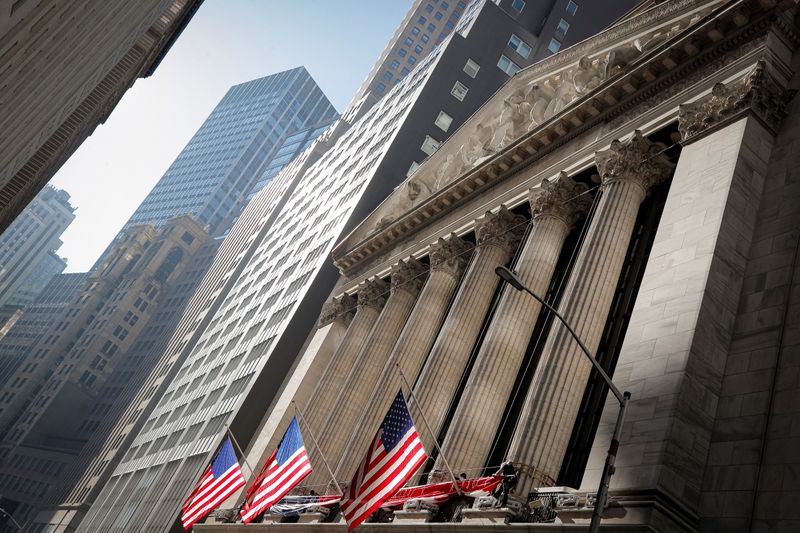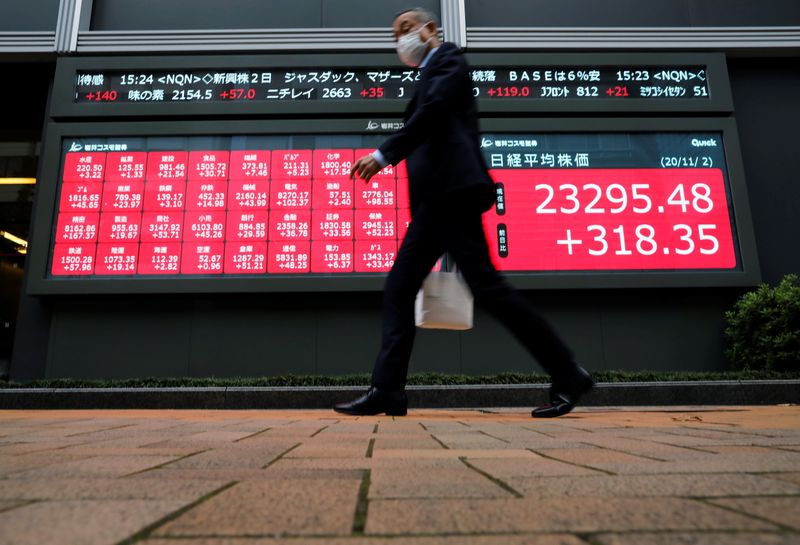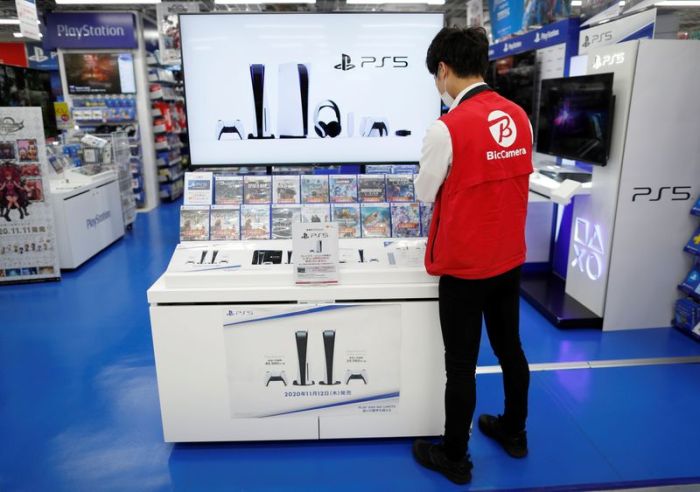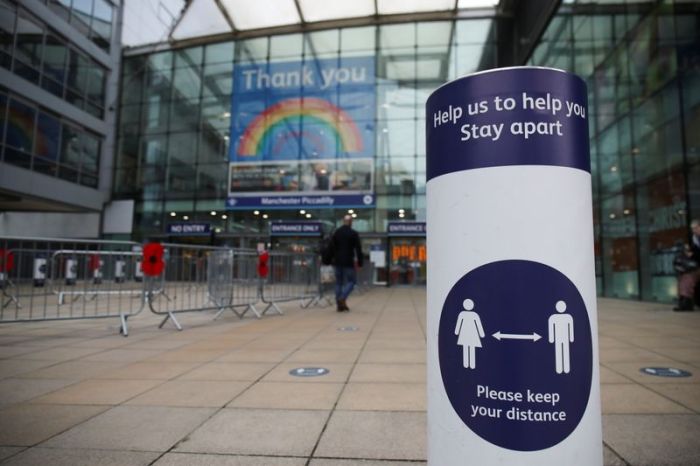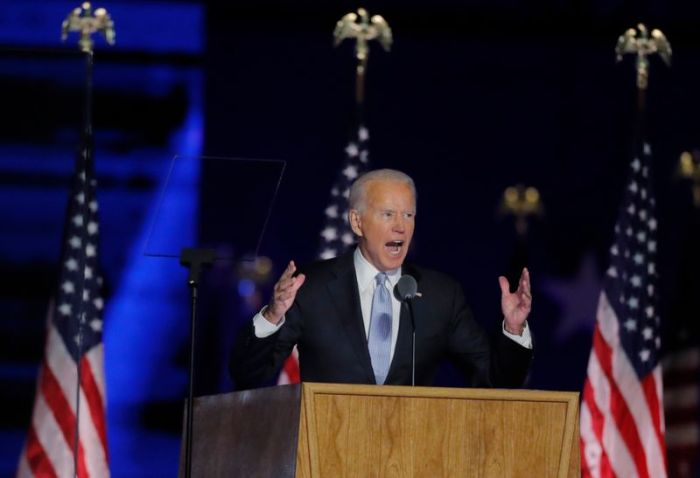NEW YORK (Reuters) – Wall Street dropped in a broad sell-off and U.S. Treasury yields fell on Thursday as spiking COVID-19 infections raised the probability of a new round of economic shutdowns, and investors grappled with the realization that any potential vaccine remains months away from coming to market.
The risk-off sentiment was widespread, with economically-sensitive cyclical stocks and small caps, which rallied on Monday and Tuesday, suffering the steepest declines.
“The sell-off globally is being driven by the sharp spike in new coronavirus cases,” said Oliver Pursche, president of Bronson Meadows Capital Management in Fairfield, Connecticut. “And you’re seeing that in the Treasury yield, the rise in gold prices and the sell-off across the board, in particular small caps and U.S. stocks.”
On Monday, Pfizer Inc <PFE.N> announced the COVID-19 vaccine candidate it developed with German partner BioNTech SE <BNTX.O> appears to be 90% effective at preventing infection, news that sent equity markets surging worldwide.
But new coronavirus infections in the United States and elsewhere are reaching record levels and tightening economic restrictions to contain the spread has dampened the prospect of a near-term end to the global health crisis.
“You’re also seeing a realization that while there was very good news with Pfizer and the vaccine, … we’re a long way from having that vaccine and at least through the end of the year, COVID is going to play a big part in our lives and the economy,” Pursche added.
The Dow Jones Industrial Average <.DJI> fell 317.46 points, or 1.08%, to 29,080.17, the S&P 500 <.SPX> lost 35.65 points, or 1.00%, to 3,537.01 and the Nasdaq Composite <.IXIC> dropped 76.84 points, or 0.65%, to 11,709.59.
The surge in new coronavirus infections prompted a retreat of European shares away from eight-month highs, with banks leading the decline, as hopes waned for a quick economic rebound.
The pan-European STOXX 600 index <.STOXX> lost 0.88% and MSCI’s gauge of stocks across the globe <.MIWD00000PUS> shed 0.66%.
Emerging market stocks rose 0.15%. MSCI’s broadest index of Asia-Pacific shares outside Japan <.MIAPJ0000PUS> closed 0.09% higher, while Japan’s Nikkei <.N225> rose 0.68%.
U.S. Treasury yields, which can be viewed as a gauge of risk appetite, slumped amid the risk-off mood and economic data that showed U.S. inflation remains tepid.
Benchmark 10-year notes <US10YT=RR> last rose 33/32 in price to yield 0.8815%, from 0.989% late on Tuesday.
The 30-year bond <US30YT=RR> last rose 84/32 in price to yield 1.6427%, from 1.76% late on Tuesday.
Crude oil prices reversed early gains, snapping a three-day rally on growing doubts over a near-term demand recovery and an unexpected rise in U.S. stockpiles.
U.S. crude <CLcv1> fell 0.8% to settle at $41.12 per barrel, while Brent <LCOcv1> settled at $43.53 per barrel, down 0.6% on the day.
The dollar was slightly down against a basket of currencies, reflecting investor caution regarding vaccine expectations amid the latest wave of infections.
The dollar index <.DXY> fell 0.06%, with the euro <EUR=> up 0.25% to $1.1807.
The Japanese yen strengthened 0.31% versus the greenback at 105.12 per dollar, while Sterling <GBP=> was last trading at $1.3119, down 0.77% on the day.
Risk-off sentiment attracted investors back to gold, which continued to recover some ground that the safe-haven metal lost in Monday’s plunge.
Spot gold <XAU=> added 0.6% to $1,876.36 an ounce.
(Reporting by Stephen Culp; additional reporting by Marc Jones; Editing by Marguerita Choy)

